Trajectory for 2025

Giving myself a chance to reflect on 2023 in my last post really motivated me to keep writing. It gave me a sense of satisfaction at the progress I’d made compared to previous years when I hadn’t set any resolutions, or was too paralysed to start.
This post is a follow up to that, where I go over what I want to achieve by December 31st 2024, and how I’m going to get there. If you’re interested in setting goals for yourself, or are already moving forward with some of them, these tips should help you. Let’s go!
Goals from Previous Years

In 2022, my goalsetting method was very much ‘all over the place’. I think given the fact that there’s always so much going on in each of our lives, it’s very difficult to narrow down a few things to focus on. For me at least, the idea of ignoring other things that I saw could also be improved in my life - whether it was my sleep, my diet or my reading habits - was pretty painful. I always asked myself why I couldn’t just work on everything all at once.
At the same time, I was also averse to the idea that goals had to be set in the new year. ‘Why not just set them throughout the year?’ I said. And while it was true, that idea didn’t help me in any tangible way. The truth was, the push that everyone feels towards motivating goals in the new year is quite special, and it’s a very good idea to channel that energy and get started on something new, rather than let it go to waste.
My ambitious mindset didn’t get me very far back then, and by the end of the year (from what I remember) though I did track my goals, I didn’t make as much progress as I’d have liked.
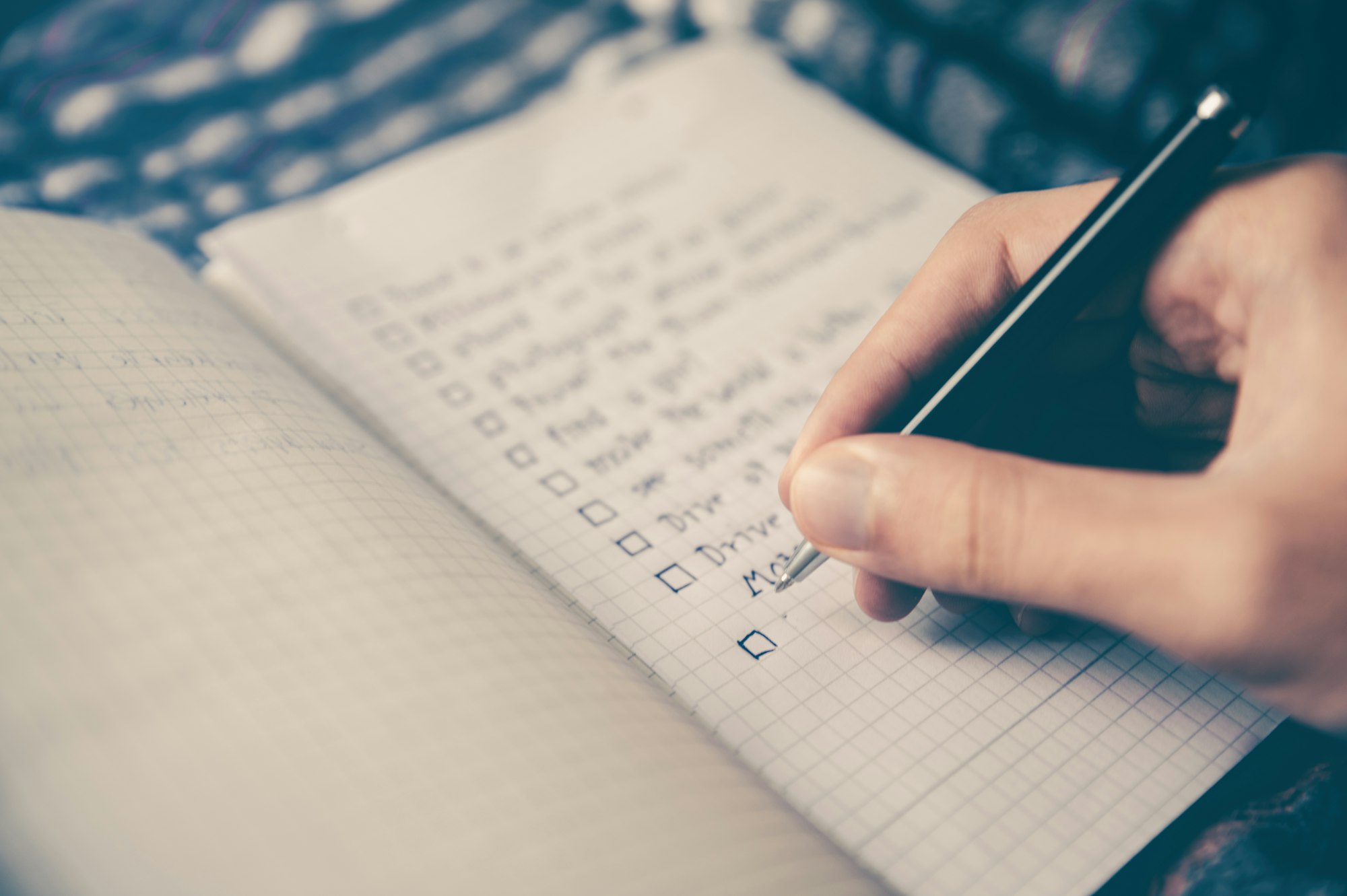
Moving to 2023, I tried a different approach. From every possible goal I wanted to achieve, down to 2 broader goals: self care (which encompassed the foundations of sleep, diet and exercise) and content creation. It seemed like these few things were what I needed to optimise first, given the journey I was on and where I saw myself heading in the future. Without a proper bodily schedule, physical fitness and a core work ethic to create and publish, I wasn’t going anywhere.
So with that, the last year was spent on those few targets. And surprisingly, it started working. I published at least 80 separate posts, managed to fix my sleep for a good few weeks, started going to the gym and improved my eating habits. Sometimes that aspect of focus is all you need to make the initial progress.
So, What Now?

The question I'm asking myself now is, what are my goals for this year, and what strategies can I use to make even more progress?
In my last post, I outlined these 3 things to think about:
- What do I want to do differently this year?
- What areas of my life do I want to develop?
- By December 2025, what do I want to be able to say I accomplished?
And it led me to brainstorm a lot.
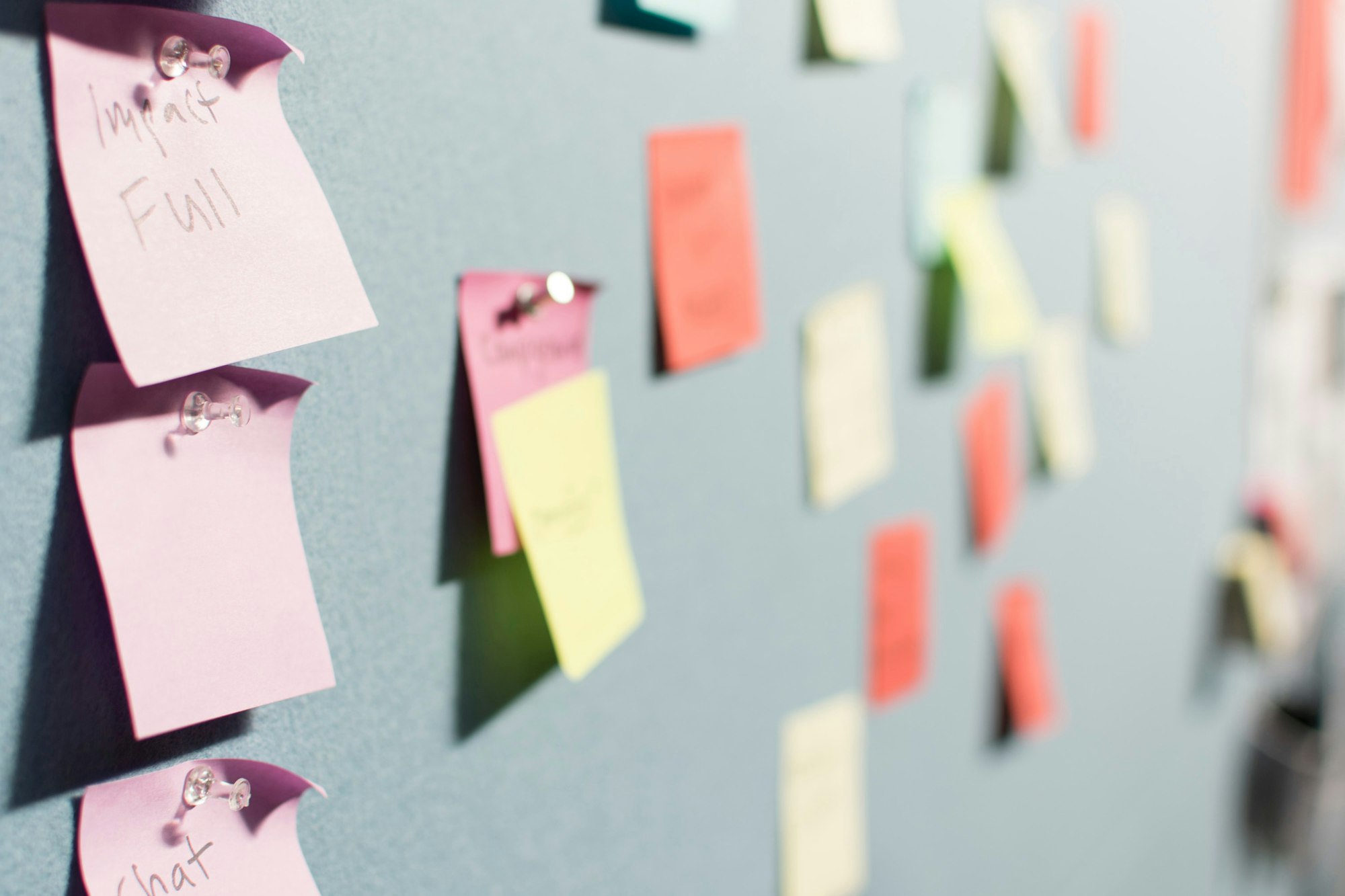
In terms of what I wanted to do differently, I wrestled a lot with the idea of analysis paralysis, and what had caused me not to achieve as much as I wanted in 2022. Reflecting on the last year, and returning to that ambitious mindset, I resolved that while my thoughts towards wanting to improve all these different things might not change, I could reframe my actions each day to be focused much more on moving the needle just that tiny bit, to ensure I was making steady progress, and wasn’t stagnating; since that’s what will actually help me move forward, and what was really still missing from my goals in previous years.
It reminded me of the famous mathematical analogy that gets thrown around about 1% improvements:
1.01^365 = 37.78
i.e. - with just a one percent improvement, every day, for the next year, you can end up with a sum of improvements that gets you to 37 times your initial state.
I started with the initial categories of life that I saw I could make improvements in, and some specifics for each one. If you also want to do this, one framework that I found to really help with this is ‘The Wheel of Life’ (referenced in Ali Abdaal's book, Feel Good Productivity - you'll find me using a lot of the frameworks referenced in there!)

It's a simple exercise that asks you to outline 9 key areas of your life, and rate yourself on your performance in them. It can be really helpful when it comes to thinking about what you want to improve on in the coming year.

Once you have a rating for all of them, outline the 3 key areas you want to improve.

And use those as the basis for your goals.

Doing this exercise myself, I actually found a lot of areas that I'd put down as 4's or 5's:
- Body
- Soul/Spirit
- Money
- Growth
- Friends
And it helped me outline even more ideas for what I wanted to achieve in the year.
So, with all of that done, I brainstormed a full list of every area of my life I saw I could make improvements in, or planned to achieve. Here they are:
The List
Body
- Sleep - get to the point of consistently going to sleep before midnight
- Diet - keep a food diary consistently
- Exercise - go to the gym at least once a week, and maintain a daily push-up routine
Mind
- Reading - start collecting physical copies of the books that really matter to me, and read them again, mindfully. Collect at least 12 by the end of the year, and have written implementations or notes from their insights.
- Journaling - continue the practice of journaling to recount the events of each day for another year.
- Writing - start writing more, whether that's for the blog, for social posts, or my own enjoyment in creative writing for my fantasy fiction work.
Soul
- Prayer - get to the point of praying 5 times a day consistently.
Mission/Career
- University - graduate with a 1:1
- University - finish my final year project
- Kestrel - work with the team to create the finished drone, PK2, and fly it at the event in Buckminster
- Personal Brand - continue to post consistently on a platform (not sure which one to focus on yet, if any) making content about engineering and the astronaut dream
- Astronaut Dream - create a database of past and present astronauts in training, to help me learn more about what I need to become one
Growth
- Flying - continue flying lessons, and get to my first solo flight
- Learning Languages - I want to reach conversational fluency in Arabic and Chinese.
- Driving - learn to drive and pass a theory and practical test
Family
- Calls - set up regular calls with my family that I stick to every week
Friends
- Friends - spending more time with the people I care about and focusing on building deeper connections
This was very much an open brainstorming tactic, where there were no rules or constraints on the exact specifics of the goals I wanted to set myself. Many of these points were just carried on from my previous goals, or things that I’d been thinking about for a long time - and there was no specific time limit on any of them. Some, I considered as daily goals. Some were longer term, and some had no timeline at all.
Reframing Perspective

After I wrote them down, I moved on to reframing each of them into specific formats. The 3 I used were:
1: NICE Goals
i.e. how can I reframe the goal to be:
- Near term (daily/weekly)
- Input based (based on something I do rather than something that happens)
- Controllable (something that I have a lot of control over)
- Energising (something I actually enjoy doing, or a way of doing the habit that I find fun).
By doing this, it meant I could turn a long term goal into something practical I could do every day to move the needle in a positive direction (the 1% improvement I mentioned).
2: Medium Term
i.e. how can I reframe the goal into a sentence that I could tell someone I’m having dinner with on December 31st 2024, about what I managed to achieve in the last year?
This helped me keep the year in perspective, knowing I had key targets to meet by a certain date at the end of the year.
3: Long Term
i.e. how can I reframe the goal to be something I’d want to have written about me after I die? If this doesn’t make sense, why do I really want to do it?
This one brought me to the far future, and reflecting on why I was even working towards the goal in the first place. Is it something that really matters to me? Will it matter when I die?
So, I got started. By the end of this process, I'd ended up with a massive table for each goal, outlining it through the 3 different frameworks, with a few additional columns to help me figure out things like what I could do to make chasing each of these goals more fun (going back to that idea of Feel Good Productivity). I'll add the table at the end, with all of my goals for the year and how I'll go about fulfilling them. But for now, I wanted to cover 3 more techniques that I found to really help.
The Crystal Ball Method

Referenced in Feel Good Productivity, and in my last post, this method is all about envisioning the future, and what might happen in the coming week. Assuming you have goals you've set yourself for the year - what might happen if you don't achieve them?
The Crystal Ball method proposes this:
Imagine its a week later and you haven't started.
- What are the three reasons?
- How can you mitigate them?
- Is there someone you can ask for help?
- Is there something you can do to stop these things from happening in the future, right now?
By envisioning the future and planning for this theoretical scenario where you don't achieve what you want, you can make a contingency plan for failure, and, by that logic, increase your chance of success.
The Streak Freeze

Another really interesting and useful idea I took onboard for my goals this year was the aspect of the Streak Freeze, from Duolingo. It was something I found after using the app for a while and eventually not being able to continue every day.
A streak freeze, in Duolingo terms, is essentially the app’s way of allowing you a day off of your language learning goals, without the pain of seeing your streak lost completely. So if for example you have a streak of 99, and on Day 100 you don’t use the app, Duolingo takes one of your Streak Freezes to keep the streak going, allowing you to continue on Day 101 without losing it.
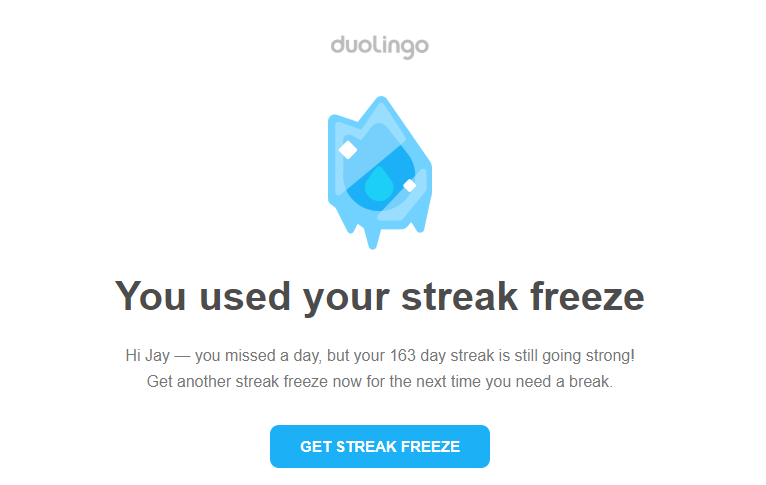
And that simple idea motivated me to keep going with my language learning to where I am now. It was reassuring to know that even if I couldn’t manage to learn one day, it didn’t mean my progress was ruined completely. And it made me realise that that’s often the mindset that people often use towards every one of their goals.
Many people subconsciously think, if you miss a day of going to the gym - there’s just no point anymore. You’ve broken the streak, so you might as well eat out tonight. And for the next week. And probably forget the goal entirely - after all, you broke the streak. In Feel Good Productivity, Ali Abdaal references this as ‘failing in abandon’: if you manage not to keep up the habit, your brain reverts to old ones instantly, and in a very elastic way, setting you back massively.
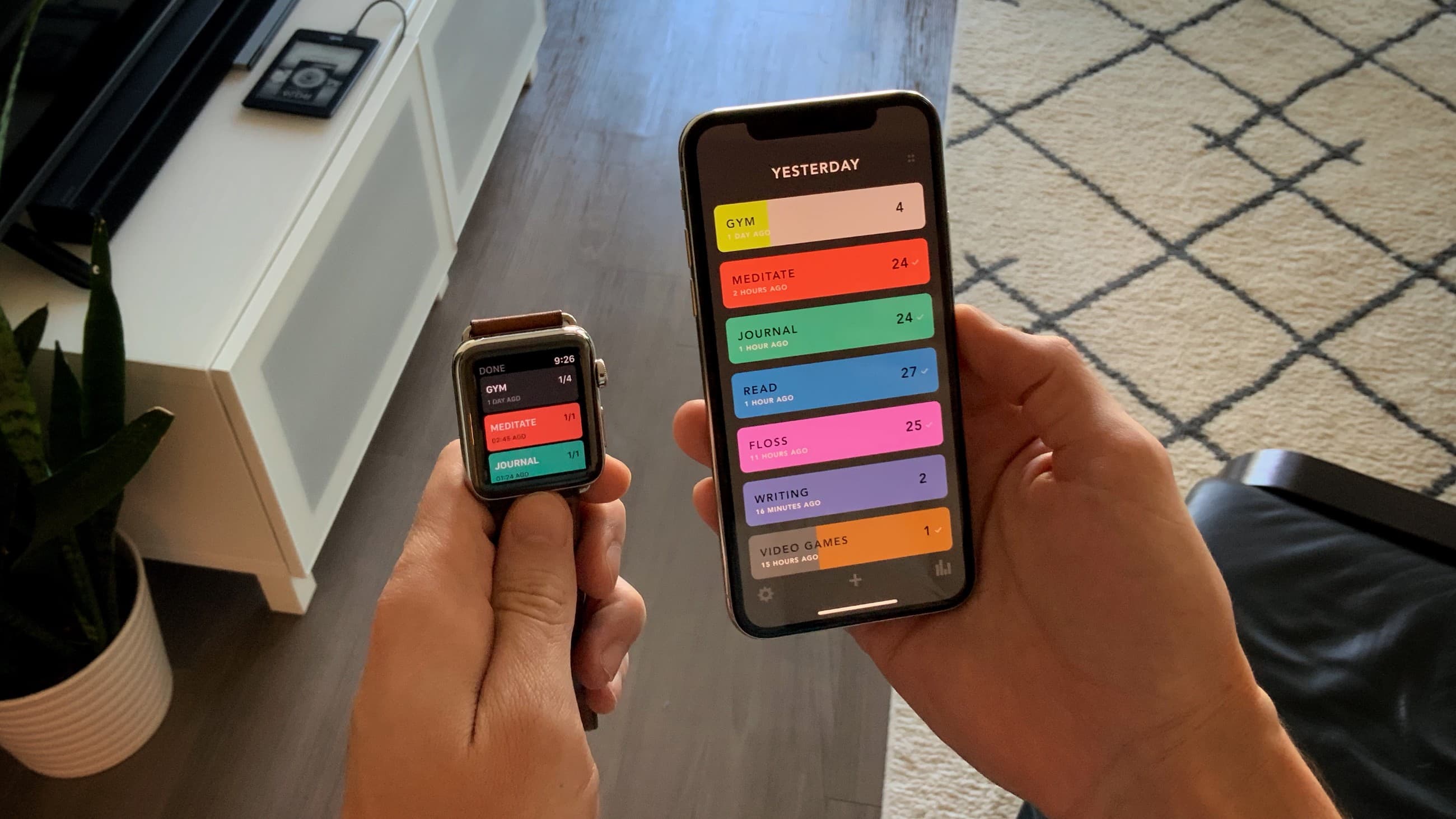
I realised I did this as well last year, and so I’m taking forward the aspect of streak freezes for my other goals. I tend to track goals a lot using the Done app, and anytime I missed a day in the past I was really demotivated, because it meant starting from 0. This time, I’m giving myself the freedom to continue with the streak on exceptional days, even when I can’t manage to do the habit. It means that the next day, I’m not catapulted back into that negative mindset, and can keep going as normal. And if that means having a few extra days when I didn’t actually perform the habit in the tracker - I can live with it.
Using Shortcuts

Another game changer for me in the last week, when it comes to setting up habits for the year, is using the Shortcuts app on the iPhone. It comes preinstalled on most iPhones nowadays, and it’s really useful for getting you out of a default mindset when it comes to doom scrolling, or going onto socials at times when you really don’t need to, or don’t even intend to.
Here are some of the shortcuts I’ve set up so far:
- When I open Instagram, the Shortcuts app automatically redirects me to an app called ‘One Sec’ - which increases the loading time for the app by showing me a screen that says ‘Take a deep breath’. After 5 seconds, it asks me if I really want to open the app. And even just that extra 5 seconds helps me realise whether I actually want to check a message, or whether I just instinctively clicked on Instagram because I had a bit of free time. It’s already stopped me wasting so much time.
- In the morning at 8:01pm, my Shortcuts app switches my phone to the Done to do list app to track my morning push-ups for the day.
- Whenever I close Duolingo, the Shortcut app redirects me to the Done to do list app to check the rest of my to do's for the day.
Moving the Needle by 1% Each Day
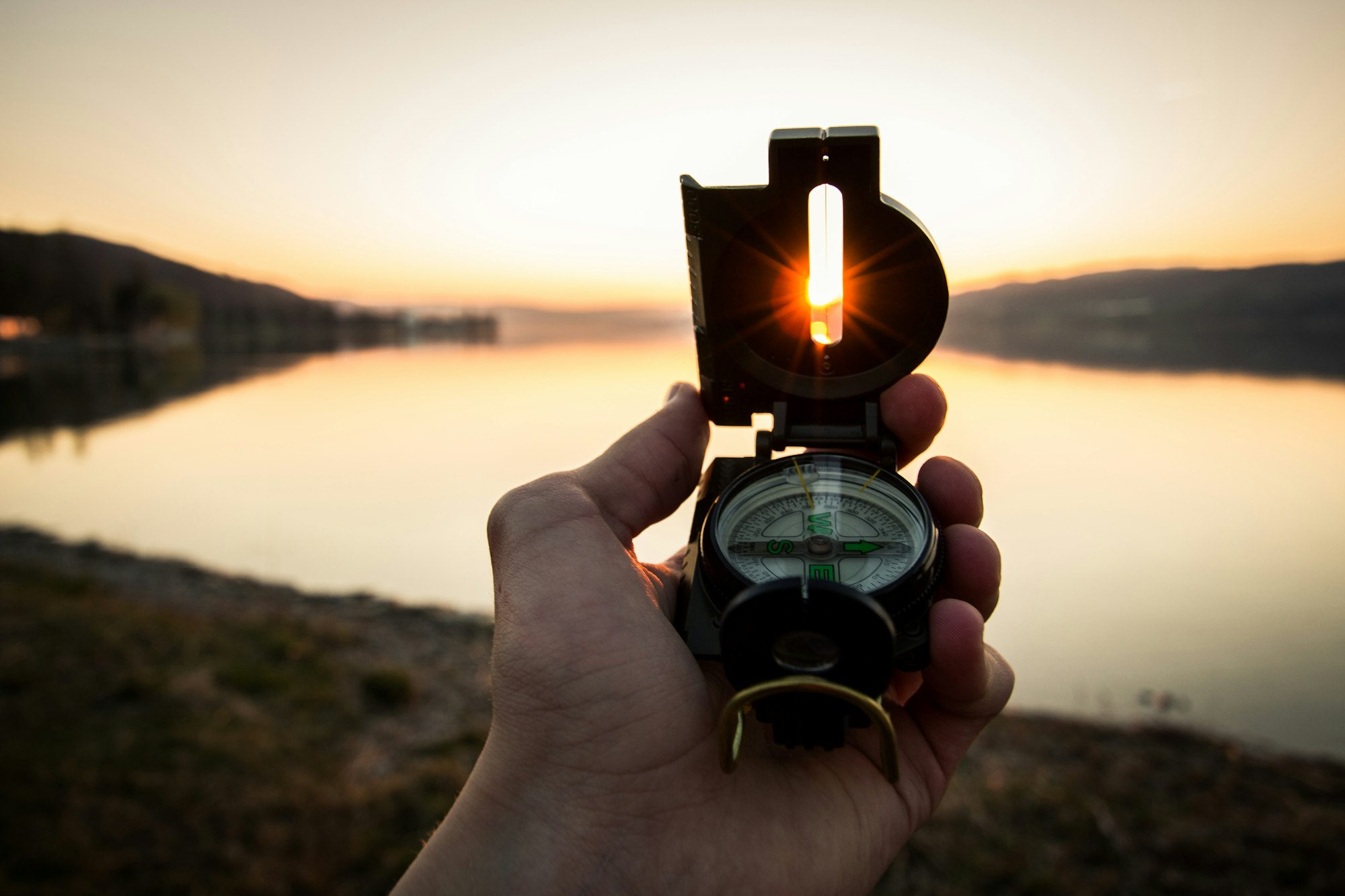
So, with all of that out of the way, here is the full table of my goals for the year. Having written it all out like this, I realise I'm reverting back to one of my previous mindsets of 'I'm going to try and optimise every aspect of my life and see how that goes' but with this newfound focus on trying to make those 1% improvements each day, writing down exactly how I can do them, and moulding them into my daily routine, I'm hoping I can get started with at least a few of these, and see how it goes.
Here they are: https://mohammadaskari.notion.site/Trajectory-for-2025-9303fc31ecc446178e7461fc7ac35f1d?pvs=4
Completing this full table took me a few hours - even just looking at it is intimidating for me - but I recognise with each goal, the act of writing the answers to each question, things like what I'd want written about me when I die, or what I want to have said by the end of this year - it's showing me the importance of each goal I'm setting.
Still, this was only the beginning for me. Because, with the overwhelm that it's easy to feel, I also went into the 'Done' app on my phone - forgetting about the table entirely, and just writing the NICE goals as daily to do's that I can focus on for now. Adding them into there, and setting up automations that reduce the friction for me to have to do anything to start, will hopefully really help.
I think it's important to recognise that given the number of different goals I've set myself, there will be times that I feel overwhelmed mentally, as well as due to my other commitments at university and later on in the year. Because of this, I need to remind myself that not all of these goals have to be pursued everyday, and it's okay if I don't hit some, or most of them. As long as I have a few key things everyday that I've managed, I've made good progress.
How I'm Avoiding Burnout this Year

Reading Feel Good Productivity also gave me a massive insight on what burnout actually is and what types there are. It really shed light on what I've been going through the last few years, trying to push myself to achieve more and always feeling overwhelmed. I'll outline the 3 types here, with some lessons I took learning more about them:
- Overexertion Burnout - this simply comes from doing too much work, or too many things at once.
- Solution: Do less. Say no to more things. Focus on what really matters to you.
- Make 2 lists. In the first, write out all of the dreams, hopes and ambitions you have of doing specific things. In the second, write down what you're actively investing in right now, on a daily basis. Try to limit this list to single digits. That way, you can clarify what you're really focusing on right now.
- Depletion Burnout - this is a result of not resting properly, and doing the wrong things when it comes time for you to rest.
- Solution: incorporate rest into your schedule deliberately, into the times when you think you'll need it most. Rest even when you think you don't need it.
- Make two lists. In the first, write out all of the things you do when you take a break. In the second, write down what actually makes you feel rested (i.e. sleeping, going for a walk, stretching). Comparing these two lists will help you understand if you're resting ineffectively, or doing things that aren't allowing you to rest properly, so you can change your habits.
- Misalignment Burnout - this happens when our goals don't match up to our sense of self. If we don't act authentically, and chase external things like money or fame, it can lead to us feeling overwhelmed.
- Solution: align your actions with your values and deeper sense of self. Think about the really long term - what you'd want people to say about you when you die - and whether the things you do everyday are holding up to that.
I think it's important for me to keep these lessons in mind as I move forward into my final year, and my final semester, working towards the flight of our drone, my final year project, exams and graduation. It's an exciting time, but the key is to be able to handle the stress and have fun!
A Note on Sharing Goals

Many people often shy away from sharing their goals with other people. Even while writing this, I had a discussion with someone about whether it's even a good idea to post the table above publicly. Surely it invites people to think badly about you, or be envious? Surely saying them out loud will mean you won't actually be motivated to achieve them? Surely you're just doing it to have the satisfaction of having written something that you haven't actually accomplished?
To be completely frank - I don't buy any of it. Nowadays, I'm very much of the mindset that the insights I have to offer can benefit people, however small they are - it's been proven to me from the messages I get every now and then. And even if it's one person that reads this and finds something useful, I'm willing to put it out there. These are goals, which means I haven't yet completed them, but intend to. Writing them out, and posting them for the world to see, is my way of assuring myself that they're set in stone, and targets that I will continue to work on for the entirety of the year.
If you've been asked about your goals in the past, but have shied away from saying them, for whatever reason - the only advice that I have to give, would be to ask yourself why - and keep asking why, to dig down to the core belief you have about what it means to tell people about the things you'd like to do, or to . Because often times, it can just be a case of embarrassment, or wanting to avoid the negative emotions of other people, at the expense of inviting positivity into our lives.
That's a big sacrifice to make. And personally, it's not one that I'm willing to make.
A Conclusion
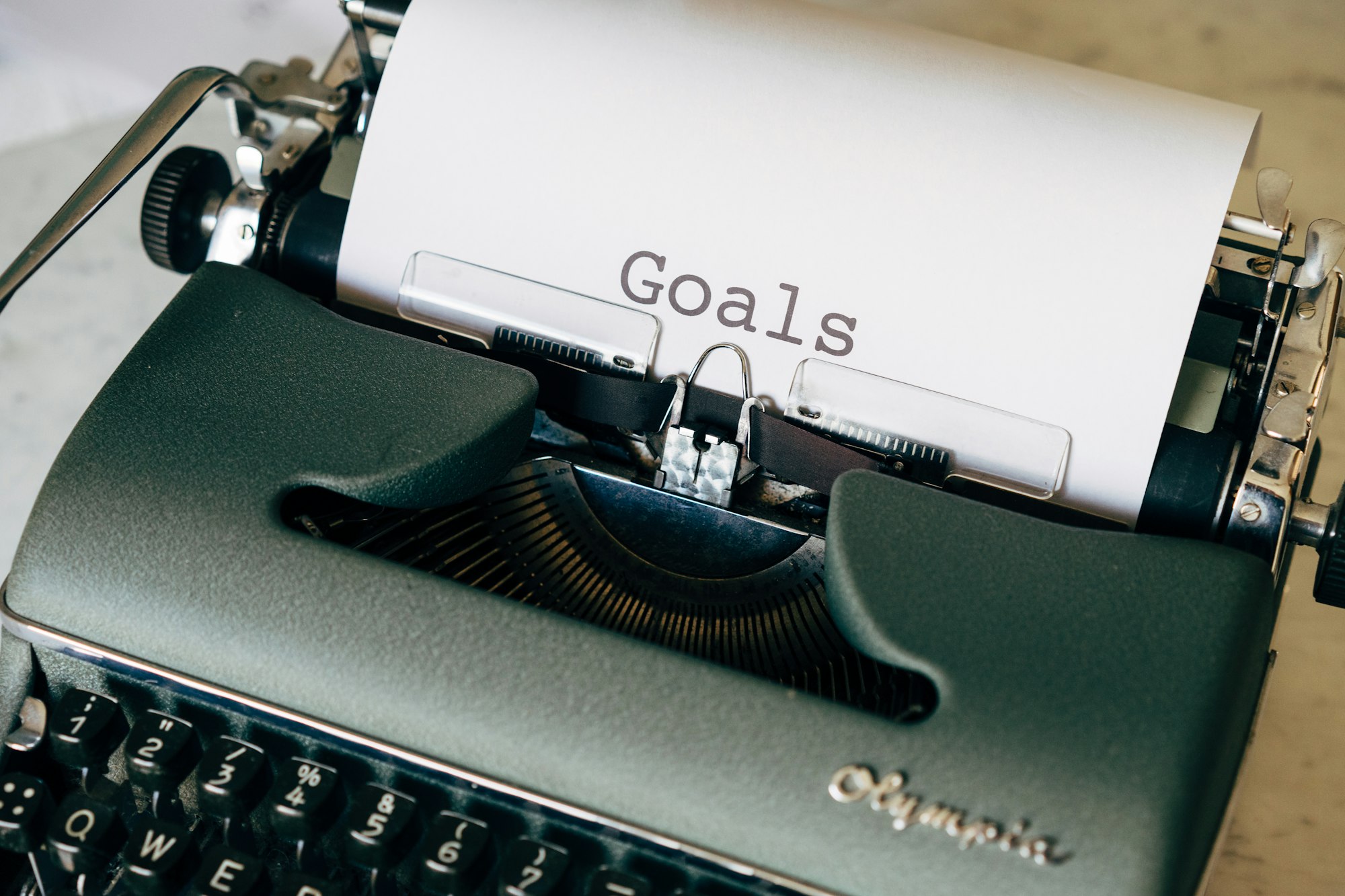
Ultimately, I want to treat this goalsetting practice like a fun challenge, rather than something I'm forcing myself to do everyday. The more I can gamify it in my head, the easier it will be.
I can already tell this year will be full of new experiences and challenges. My time off over the winter holidays was really necessary, and I'm glad I took the chance to relax and reflect. As we go into 2024, I'm excited for what's to come, and determined to make the most of it! Wishing you all the best for the year ahead.
On the off chance that you've read something on here and loved it, or want to read more, feel free to shoot me a message on my socials:
Instagram:
LinkedIn:
The feedback helps massively. Thanks!
